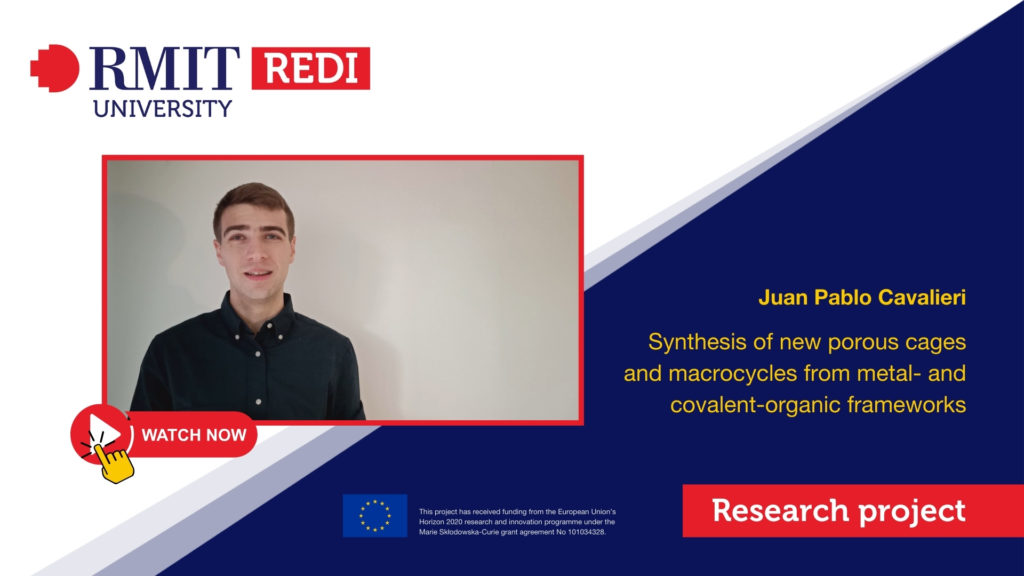New materials make our lives easier. Thousands of years ago, the introduction of materials like brass or iron revolutionised our societies. They allowed the access to useful tools for hunting or building like knives or hammers, simplifying our ancestors tasks. Even a few years ago, steel revolutionized our societies by permitting the development of robust machines that simplified our lives like cars or electro domestics. For that reason, we need to find a way to obtain novel materials, to continue making our lives easier. Nonetheless, these new materials need to be atomically controlled to access new properties and applications.
Juan Pablo is researching a technique called Clip-Off Chemistry which allows access to new materials that can be difficult or impossible to obtain by standard methodologies. This technique is quite unique since it is based on the controlled cleavage of materials instead of building them from scratch. By studying Clip-off Chemistry on reticular materials, the project aims to obtain molecular cages and macrocycles never reported before.
Watch a video about Juan’s project:
